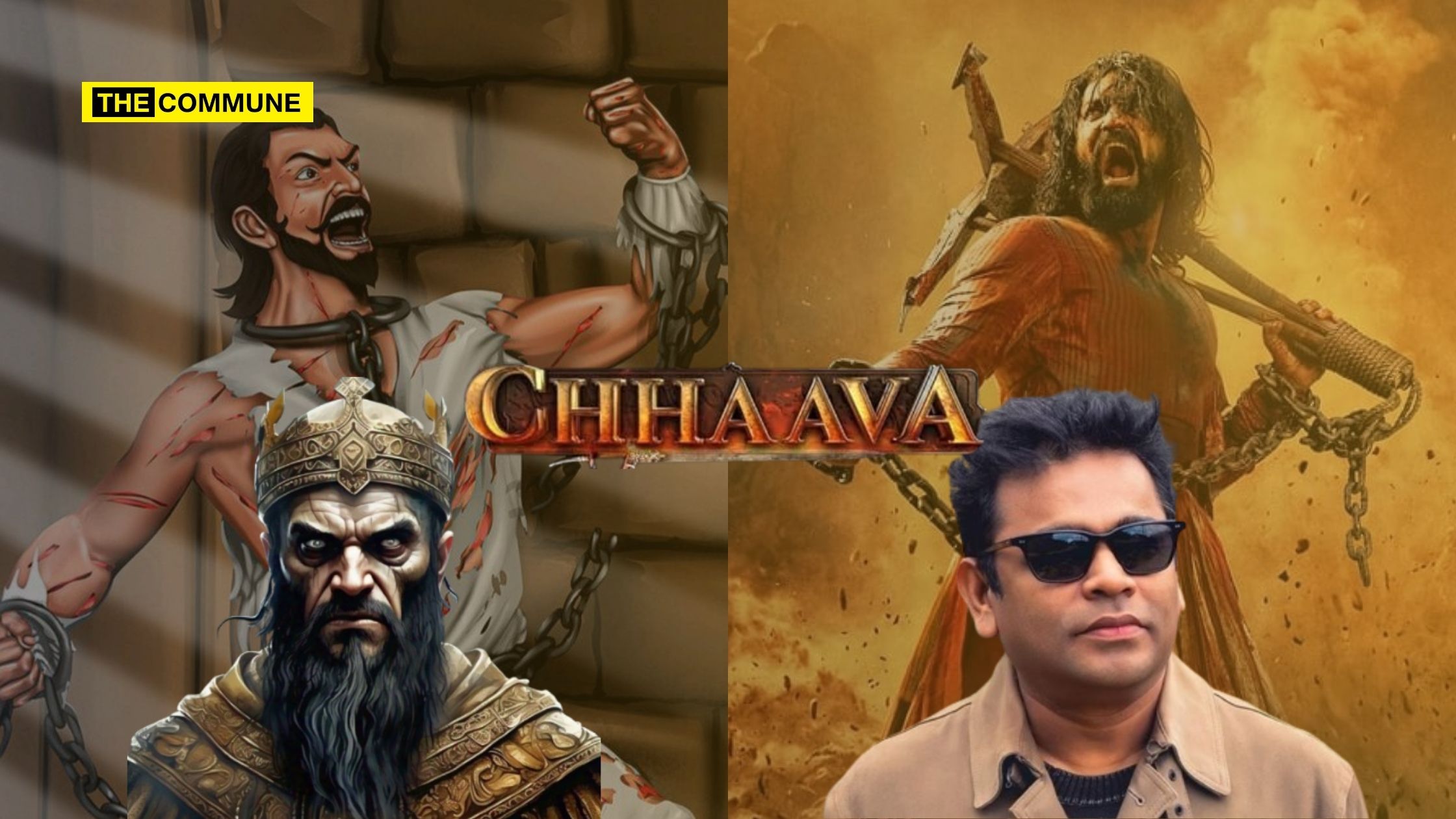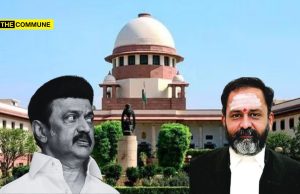
Chhatrapati Shivaji Maharaj is well-known across the country but there is very little that we Indians know about his son, Chhatrapati Sambhaji Maharaj. Not many Tamils know that Chhatrapati Sambhaji Maharaj, or Shambhu Raje as he was dearly addressed, played a great role in restoring the Nataraja idol to Chidambaram Temple. Displaced during the Bijapur Sultanate’s ransacking in 1648, the idol was hidden and temple rituals halted. Sambhaji, with his Guru Muthaiya Dikshitar and official Gopala Dadasi, retrieved and reinstalled the idol, renovating the temple. A Tamil verse on a copper plate commemorates this event, marking Nataraja’s return in the month of Karthigai after 37 years.
After Shivaji Raje, Sambhaji Raje holds a significant place in the hearts of Marathas. His history was never told the way it should have been – be it his burning thirst to fulfill his father’s dream of Hindavi Swarajya, the barbaric torture he faced at the hands of the tyrant Aurangzeb, or how he refused to convert in order to save himself while being tortured.
The Film
Chhava, the film starring Vicky Kaushal (of Uri and Sam Bahadur fame) in the titular role with Rashmika Mandanna playing Maharani Yeshobai offers a powerful performance – bringing to life the characters they are playing. Vicky Kaushal looks like a lion all through the film, he roars (a lot, yes) but that can be forgiven. In fact, every single cast in the film has done an amazing job and has elevated the film – so much so that people were seen leaving the theatres weeping. The film, while not so tight in its story, portrays the Marathas in a fabulous light – that they truly deserve. The fight scenes, the iconic guerilla tactics of the Marathas, and the legendary scene where Maharaj fights a lion, have been portrayed exceptionally well. The film also shows us a glimpse of how talented Shambhu Raje was – he speaks in English in one scene with a British officer and we also get to see how rich the empire was, the grand Rajyabhishek and how prosperous our country was in those days.
The story does not include too much about Shambu Raje’s life but given the time limit, the makers try to do as much justice as they can. Some of the negatives include the heavily Urduized dialogues, the lack of Maratha accent or dialogues in the film, and the fact that Aurangzeb praised Chhatrapati Shivaji Maharaj at the beginning of the film and does the same when Shambhu Raje passes – this bit particularly felt a bit off. There is history of Aurangzeb calling Shivaji Maharaj a “mountain rat“, but whether he praised him is kind of baffling. For a tyrant who found pleasure in killing and torturing people, no matter how great the enemy, would he have praised him? I think not.
In the film, they also do not show much of the torture that was meted out to Shambhu Raje – the peeling of the skin, the beheading, the display of the head in public, the mutilation of the body and such. In my opinion, it was kept clean for family audiences and today’s generation of moviegoers are unable to stomach what had happened in the past.
The first half is a bit slow, and the real action starts in the second half. The film truly hit the core of the audience’s hearts the moment Shambu Raje and his camp came to know of the betrayal by his own relatives which leads to the Mughals catching them unprepared for war. The way Raje fights singlehandedly facing a thousand Mughal soldiers – that moment you see the real Sambhaji Maharaj, the way he fights on despite knowing he has been cornered, and his captivity and subsequent death are only moments away. You are left in awe of the hero that he was and the respect he deserves from us. From the time he is chained and brought in front of Aurangzeb till the last minute of the film where he is shown to die, is what takes the film to another level. Maharaj’s interactions with the Chandogamatya Kavi Kalash in the climax leave you with a lump in your throat.
Deplorable Music By A So-Called ‘Legend’
While Aurangzeb killed Shambhu Raje in real life, it was “legendary music composer” AR Rahman who killed the film and the majestic hero in reel. AR Rahman was the biggest misfit in the film, and he destroyed what could have been an epic that would have remained in public memory for a long time.
Rahman’s music for Chhaava was a shockingly below-average and out-of-tune soundtrack for a period film that deserved so much more. Rahman’s work here isn’t just disappointing; it’s downright pathetic, and it single-handedly kills the soul of what could have been a powerful historical epic.
No Marathi Touch
Let’s start with the most glaring issue: the music feels completely disconnected from the Maratha culture and the 17th-century setting. For a film rooted in Maharashtra’s rich history, where was the regional flavor? There was absolutely no hint of traditional Marathi musical essence in any part of the film, maybe a Dhol Tasha in the passing just happened by mistake.
What we got to listen to was a bizarre mishmash of Arabic tunes, Middle Eastern beats, and jarring electronic elements that feel like they belong in a 2010s rom-com or a Spanish fiesta, not a period drama about Chhatrapati Sambhaji Maharaj. The background score is so out of place that it actively distracts from the film’s narrative, pulling you out of the experience every time an ill-fitting tune kicks in.
Did the filmmakers not update AR Rahman that the film was about Sambhaji Maharaj and not Aurangzeb?
Why Does Rahman Even Sing?
Let’s take Aaya Re Toofan which was supposed to be a powerful, anthemic track to rally the spirit of Shambhu Raje and also the Maratha warriors. Instead, it feels like a half-baked attempt that lacks the punch and grandeur it needed. Rahman’s decision to sing the song himself is baffling, especially when someone like Sukhwinder Singh could have elevated it to another level. The song tries to tick Marathi music checkboxes but does so in the most forced and unconvincing way.
We are forced to compare this to Malhari from Bajirao Mastani, which effortlessly captured the Maratha spirit and became an instant classic. Aaya Re Toofan falls flat, and its inability to resonate with the audience is a testament to Rahman’s failure here.
Then there’s Jaane Tu, a song that feels like it was plucked straight out of a mediocre rom-com with its piano crooning in the background. The tune is forgettable, the lyrics are uninspired, and even Arijit Singh’s voice can’t save it. This is supposed to be a moment where Maharani Yesubai (played by Rashmika Mandanna) worships the return of her warrior king, but the song lacks any emotional depth or cultural authenticity. It’s a far cry from the kind of music that should accompany such a poignant scene in a historical drama.
And guess what, you even get to hear a rap song! Imagine being this disconnected to the soul of the film!
Mughal Movie Or Maratha Movie?
Rahman’s background score is equally atrocious. The moment Akshaye Khanna, playing Aurangzeb (he nailed the role beyond perfection), delivers his dialogue, you’re suddenly hit with a Middle Eastern tune that feels more suited to a desert caravan than a Maratha court. And then, out of nowhere, electronic elements creep in, completely ruining the mood. The sound design is so inconsistent and jarring that it takes away from the film’s otherwise well-executed action sequences and visuals. The war scenes, which should have been elevated by a rousing score, are instead undermined by Rahman’s insipid compositions.
Moments that called for an upbeat, rousing BGM were instead met with sounds that felt completely out of place. The moment where Shambhu Raje sees the betrayers deserved another fitting BGM that would move audiences to tears and fury, but we hear nothing. The horror of the barbaric torture is not brought out well by the background score – it seems to fit a film on the Mughals, rather.
Could Someone Else Have Done A Better Job?
It’s baffling why the filmmakers didn’t opt for the sons of the soil, Ajay-Atul, who have repeatedly proven their mastery over Marathi music and larger-than-life soundscapes. Their work in films like Sairat and Natrang showcases their deep connection to Marathi culture, and they could have brought the authenticity and grandeur that Chhaava desperately needed. Even a bad film like Panipat, which had its flaws, managed to deliver memorable songs like Mann Mein Shiva that resonated with the audience. In contrast, Chhaava’s soundtrack is utterly forgettable.
Lazy Attempt & Trashy Music
Rahman’s inability to capture the essence of the period is even more glaring when you consider the cultural richness of the source material. Rahman’s music fails to transport you to the 17th century. Instead, it feels like a lazy, half-hearted attempt that lacks proper historical research and cultural sensitivity. Rahman seems to fit in only with Mughal period films, middle Eastern origin/desert cult stories may be his forte. Being from the south, he has absolutely no inkling of what stature Shambhu Raje had, and his place in the hearts of the people – maybe Rahman must stick to his favourite Sufiyana style music.
Shameful
The film itself has its merits – brilliant performances, astounding cinematography, well-shot war sequences, costumes, etc. But all of this is overshadowed by Rahman’s disastrous music. For a composer of his stature, this is nothing short of shameful. Chhaava deserved better, and so did the audience.
A man who was the lion’s cub, a king who worked towards Hindavi Swarajya, the man who prayed for his stempmother’s wish to unseat him to come true, the man who refused to let out even a squeal of pain when tortured in the most heinous and barbaric methods, the man who refused to convert in order to save his life despite being skinned alive, the man who refused to give in to the most dastardly tyrant that ever lived – Chhatrapati Sambhaji Maharaj deserves greater respect and a magnificent portrayal and even more thunderous music to showcase his lived history – that AR Rahman utterly failed to do justice to, even by an inch or rather, a note.
A.R. Rahman’s lifeless, out-of-touch-with-reality compositions are the biggest disservice there ever was to the Maratha legacy and to Shambhu Maharaj and a slap in the face to anyone who expected better from a composer of his caliber. This isn’t just a disappointment; it’s a betrayal of the trust audiences have placed in Rahman over the years and for killing Shambhu Raje once again.
Subscribe to our channels on Telegram, WhatsApp, and Instagram and get the best stories of the day delivered to you personally.




